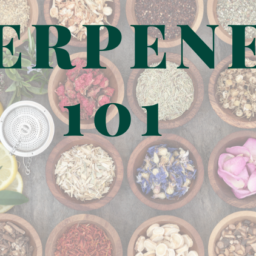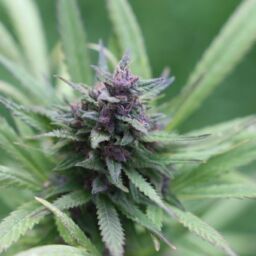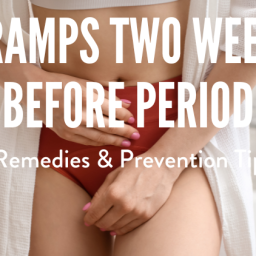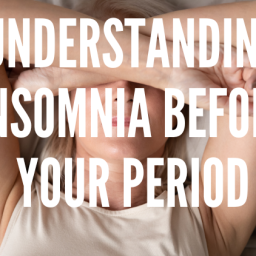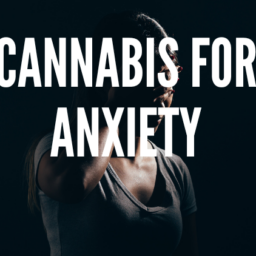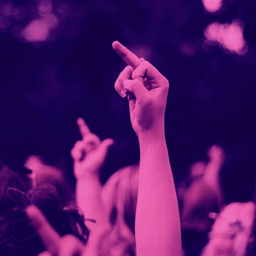
ou may have heard the term “California sober” or “calisober” lately. From Instagram to CNN, the term has gained some serious traction. But what does it really mean? And is it right for you?
Demi Lovato, a singer and actress who fights a very public battle with drugs and alcohol, is credited with popularizing the term in their recent documentary, Dancing with the Devil. As they define it, California sober is a modern take on moderation. It involves replacing “hard” drugs and alcohol with “soft” alternatives like marijuana. (1)
Since their documentary’s premiere and subsequent interviews, the term has blown up on social media with various celebrities, individuals, and addiction professionals giving their take on its safety and efficacy. And recently, Lovato has renounced the concept, stating “sober-sober is the only way to be.” (2)
So, which is it? We’ve done some digging, and we’ve got the dirt.
Understanding California Sober
How do you define sobriety?
Chances are, you’re thinking of total abstinence from drugs and alcohol. And you’d be correct. That has been the accepted definition. But with the concept of a California sober lifestyle becoming part of the discussion, it seems abstinence needs to double down. “Sober-sober” has entered the chat.
So, what does it mean to be California sober?
California sober, or semi-sober, generally means giving up most drugs and alcohol while continuing to use marijuana, or substances thought to be less harmful than the user’s original drug of choice. Here’s where it gets a little hazy: some define California sober as not drinking or injecting drugs, but smoking pot and using psychedelics like mushrooms instead. (3)
On one hand, California sobriety can be seen as an effective method of harm reduction. On the other, there is much to be said on the differences between “hard” and “soft” drugs, and whether one group is inherently safer than the other.
There’s also the neurological basis of addiction itself, where the brain looks and behaves one way in addiction, and another in abstinence. (3)
And what about individuals who have never partaken in so-called “hard” drugs, and only choose to use marijuana/THC/CBD products? Do they qualify as California sober, or are they just recreational users?
Let’s get into it.
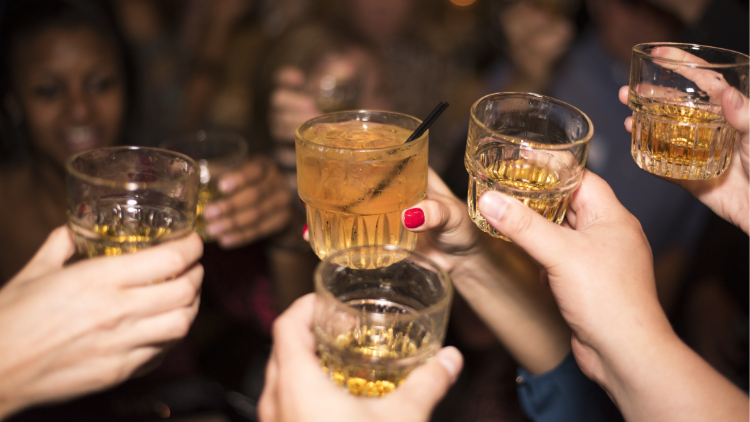
The Sobriety Spectrum
Different Approaches to Sobriety
Here’s the thing about sobriety: there’s really only one way to define it, which is complete abstinence from all intoxicants.
For some, that’s necessary to function in everyday life. For others, occasionally partaking in drugs and alcohol consumption is just part of a chosen lifestyle.
And that’s exactly the point: when it comes to moderation, that definition can and does change from person to person. One person’s nightly glass of wine might be another’s weekly indulgence.
Individual choice and preference bears a lot of weight when it comes to moderation. By contrast, with sobriety and abstinence, any matter of choice has been removed.
That leaves quite the gray area of moderation to explore.
Complete Abstinence vs Active Substance Use
The gray area of moderation has everything to do with your gray matter; that is, your brain.
And it can be a slippery slope when it comes to addictive substances – nearly 70% of adults over-consume alcohol, with 14.5 million battling alcohol use disorder. (4) For those who do seek treatment, the American Medical Association Journal reports a 50% relapse rate within a year. (4)
With numbers like that, it makes sense to think about reaching for weed instead of the bottle.
Although, speaking of numbers, while dispensaries across the country have seen a 21% rise in customer counts and a 17% increase in sales growth, about 30% of 11.8 million people who admit to using marijuana have marijuana use disorder, meaning that they’re unable to stop using marijuana despite negative affects to their health and social lives. (4, 5)
A slippery slope, indeed.
How “California Sober” Fits into the Sobriety Spectrum
If you imagine sobriety as a spectrum – and many addiction specialists do – with total abstinence on one side and total indulgence on the other, California sober sits somewhere in the middle.
That’s where it can feel scary for some, and freeing for others. Because ultimately, without the removal of choice sobriety presents, you’re floating in the gray area of moderation. Your usage of “hard” or “soft” drugs is up to you.
You choose what to take, how much to take, and how often. If it resonates with you, California sober can be seen as an opportunity to cut back and practice moderation, or to explore new substances.
Ultimately, it’s your decision.
Components of California Sober
Avoiding Hard Drugs and Alcohol
Before we can talk about avoiding hard drugs, we need to define the term.Interestingly enough, our research yielded conflicting definitions. LSD, for example, is defined as a hard and soft drug, depending on your source.
At best, the difference between hard and soft drugs is loosely defined, but does seem to be rooted in a drug’s overall effects and withdrawal symptoms. The more intense those are, the “harder” the drug.
Embracing Alternative Substances
Marijuana tops the list of alternative substances to your standard hard drugs. When celebrities like Demi Lovato have discussed alternatives, they’re alluding to swapping drugs like heroin and cocaine for more psychoactive substances like mushrooms and LSD. (1) At first, it sounds like they’re going for a more “natural” vibe, what with weed and mushrooms both being plants. But LSD, or acid, is a highly synthesized chemical. (6)
This is where your freedom of choice comes in. Your definition and consumption of alternative substances is up to you. Maybe microdosing mushrooms is a great fit for your lifestyle, or maybe “alternative” means ingesting alternative forms of THC and CBD, like a gummy or suppository.
The main takeaway here is that openness to exploring alternative substances might be a path to exploration, while also being aware that attempting to manage active addiction by simply replacing substances is not an alternative to sobriety. (7)
Mindful Consumption and Harm Reduction Strategies
The concept of California sober is rooted in harm reduction.
Harm reduction means exactly what you think it does: reducing, by degrees, the negative consequences associated with drug use. (3)
Think about it this way: if your main gripe with drinking is waking up with awful hangovers, wouldn’t it make sense to tweak your drinking?
In more intense cases, this can mean replacing opioids with prescription drugs like Suboxone, which wean the user off their dependence. (8)
In any case, embracing a more mindful approach to the substances you consume can lead to increased awareness of your own habits, wants, and needs – and that’s a path to change.
Pros and Cons of California Sober
Benefits of California Sober
At first blush, choosing something without strong side effects sounds like a great alternative for harder drugs.
But it’s not that simple. At least, not for adults in active addiction or with substance use disorder and mental health issues.
Let’s frame it this way: if you had a food addiction, or a problem with overeating, telling yourself you’ll only eat celery isn’t the most effective path to recovery.
At the same time, not everyone considering using marijuana is an adult with substance use disorder. Moderation and marijuana may be an effective way to increase self-knowledge and expand self-understanding.
Drawbacks and Potential Challenges
The drawbacks and potential challenges for adults with a history of addiction are numerous, especially when you consider that marijuana is still an addictive substance.
And when adults who struggle with addictive substances or mental health issues try to swap one for the other, it often, if not always, causes them to relapse on their original drug of choice – the whole “slippery slope” thing.
Seeking Professional Guidance
Importance of Individualized Approaches and Professional Advice
Everyone’s journey is different. No matter where you are on that journey, it’s essential to have help. You don’t need to have a history of drug use to be curious about substances and how they affect you, which is why seeking professional advice can be so valuable.
Consulting Addiction Professionals
Consulting an addiction specialist is never a bad idea.An addiction specialist can answer any questions you might have about how a certain drug affects your body and mind, how your habits are impacting your life, and strategies you can undertake to live the life you want – even if you don’t actively struggle with addiction.
Conclusion
As bright and sunny as it sounds, California sober isn’t the easy-breezy solution to addiction some celebrities and the media have made it out to be. Case in point: Demi Lovato, the first famous person credited with popularizing the term, has since spoken out against it.
And while we champion the importance of personal choice, especially when it comes to what you put in and on your body, sometimes the healthiest and smartest choice to make is to abstain completely.
But what if you’ve never had an issue with addiction, and just want to try something new? No doubt marijuana and its active THC and CBD compounds contain a myriad of potential health benefits, especially in alternative forms. (9)
In that case, being California sober makes more sense, though it may not be the right term for you – after all, you’re not abstaining from anything, you’re expanding your horizons.
When you look at it that way, things seem a whole lot brighter.
Sources
1.https://www.addictioncenter.com/community/what-does-it-mean-california-sober/
3.https://apn.com/resources/california-sober/
4. Addictioncenter.com
5. Bloomberg.com
6. Dea.gov
9. https://helloagainproducts.com/2022/01/20/benefits-of-cbd-and-thc-together/
